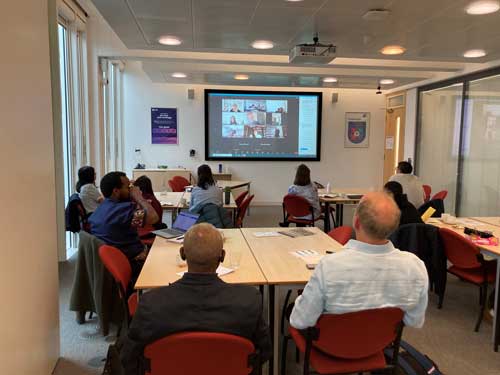Reducing poverty and improving wellbeing: time for a new ‘human’ face?

In a recent Poverty and Social Protection Hub seminar, Dr Keetie Roelen spoke about the importance of including a "human face" in policies that aim to reduce poverty and improve well-being. The session was divided into three parts: setting the scene, identifying five blind spots, and highlighting policy and research implications.
The term "human face" first emerged in the 1980s in response to structural adjustment programmes, where the push for economic structural change led to many issues concerning education and health. UNICEF advocated for an adjustment with a human face to emphasise the need for a multidimensional approach to poverty and well-being.
In the 1990s, the first human development report was published, which included the Human Development Index. This highlighted that economic growth is not the only solution to poverty reduction.
Dr Roelen emphasised that reducing poverty is not just about monetary poverty but also about different dimensions of poverty. Responding to these challenges requires a holistic approach that addresses the other shocks that individuals and households face.
One key element Dr Roelen mentioned was how there is often a lot of enthusiasm for the rollout of social protection measures. However, there are still questions about how much of that enthusiasm can be sustained, particularly in countries facing austerity measures.
Dr Roelen identified five blind spots that policymakers and researchers should pay more attention to – heterogeneity, precarity, connection, stigma or dignity and political choice.
It is essential to understand that programmes and interventions impact various individuals and households differently. Female-headed families, for example, in a graduation programme in Rwanda, were more likely to crash out of a programme, meaning they ended up with a lower level of well-being or wealth than before the programme.
Lives are becoming more precarious, and people are experiencing a lot of transitions in and out of poverty. Therefore, it is crucial to have a comprehensive understanding of the different types of shocks individuals and households face and how programmes and interventions can respond to them.
Another blind spot is the overwhelming focus on moving people out of poverty as quickly as possible with as few resources as possible. This overlooks the importance of relationships and care. Understanding power relations between individuals and households is vital because it can impact the success of programmes and interventions. Paying attention to spousal relationships and relationships with frontline workers during programme research and design is essential.
Social protection can reduce stigma as people receive cash or support and become better off. However, social protection can also compound stigma if people are not treated in a dignified way when they receive this support. It is essential to address this issue to ensure that social protection is delivered in a manner that maintains human dignity.
Poverty also often results from political decisions that shape how welfare systems are designed and implemented. Therefore, investing in programmes that prevent people from falling into poverty is crucial.
Although addressing these blind spots can be resource-intensive, there is room for research to understand how these areas can be managed sustainably. Additionally, technological innovations can be harnessed to deliver social protection while maintaining human connection.
Connect with us
Whatever your reasons for wanting to connect with us, you can contact us via email or social media on the addresses below
CSGD email
CSGD on Bluesky
CSGD on LinkedIn
Sign up to our mailing list to receive the latest news on our research, events and publications.
.jpg)